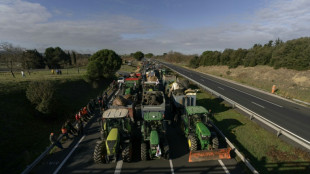
-
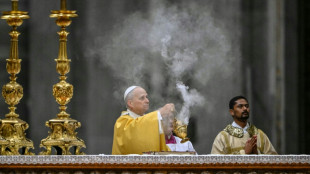 Leo XIV celebrates first Christmas as pope
Leo XIV celebrates first Christmas as pope
-
Diallo and Mahrez strike at AFCON as Ivory Coast, Algeria win

-
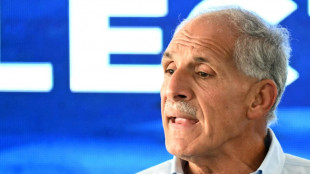 'At your service!' Nasry Asfura becomes Honduran president-elect
'At your service!' Nasry Asfura becomes Honduran president-elect
-
Trump-backed Nasry Asfura declared winner of Honduras presidency
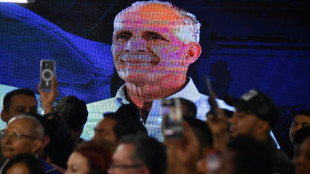
-
 Diallo strikes to give AFCON holders Ivory Coast winning start
Diallo strikes to give AFCON holders Ivory Coast winning start
-
Spurs captain Romero facing increased ban after Liverpool red card

-
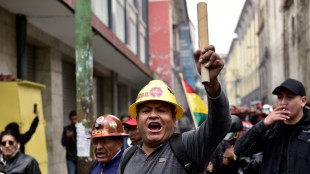 Bolivian miners protest elimination of fuel subsidies
Bolivian miners protest elimination of fuel subsidies
-
A lack of respect? African football bows to pressure with AFCON change

-
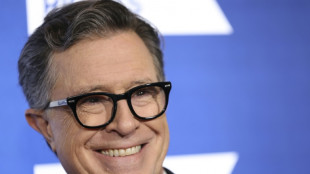 Trump says comedian Colbert should be 'put to sleep'
Trump says comedian Colbert should be 'put to sleep'
-
Mahrez leads Algeria to AFCON cruise against Sudan

-
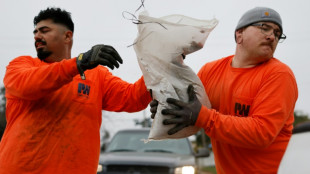 Southern California braces for devastating Christmas storm
Southern California braces for devastating Christmas storm
-
Amorim wants Man Utd players to cover 'irreplaceable' Fernandes

-
 First Bond game in a decade hit by two-month delay
First Bond game in a decade hit by two-month delay
-
Brazil's imprisoned Bolsonaro hospitalized ahead of surgery

-
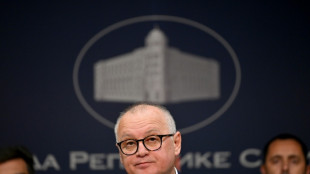 Serbia court drops case against ex-minister over train station disaster
Serbia court drops case against ex-minister over train station disaster
-
Investors watching for Santa rally in thin pre-Christmas trade

-
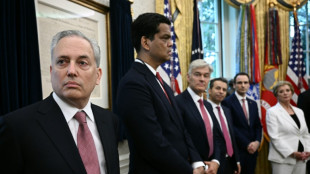 David Sacks: Trump's AI power broker
David Sacks: Trump's AI power broker
-
Delap and Estevao in line for Chelsea return against Aston Villa

-
 Why metal prices are soaring to record highs
Why metal prices are soaring to record highs
-
Stocks tepid in thin pre-Christmas trade

-
 UN experts slam US blockade on Venezuela
UN experts slam US blockade on Venezuela
-
Bethlehem celebrates first festive Christmas since Gaza war

-
 Set-piece weakness costing Liverpool dear, says Slot
Set-piece weakness costing Liverpool dear, says Slot
-
Two police killed in explosion in Moscow
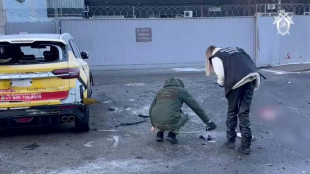
-
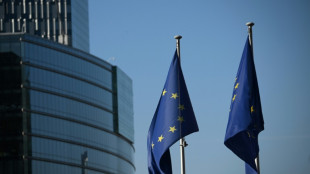 EU 'strongly condemns' US sanctions against five Europeans
EU 'strongly condemns' US sanctions against five Europeans
-
Arsenal's Kepa Arrizabalaga eager for more League Cup heroics against Che;sea

-
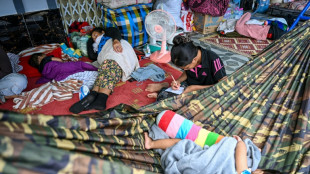 Thailand-Cambodia border talks proceed after venue row
Thailand-Cambodia border talks proceed after venue row
-
Kosovo, Serbia 'need to normalise' relations: Kosovo PM to AFP
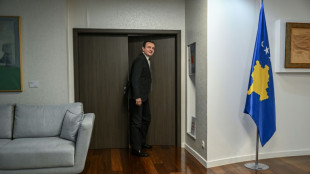
-
 Newcastle boss Howe takes no comfort from recent Man Utd record
Newcastle boss Howe takes no comfort from recent Man Utd record
-
Frank warns squad to be 'grown-up' as Spurs players get Christmas Day off

-
 Rome pushes Meta to allow other AIs on WhatsApp
Rome pushes Meta to allow other AIs on WhatsApp
-
Black box recovered from Libyan general's crashed plane
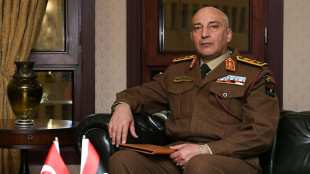
-
 Festive lights, security tight for Christmas in Damascus
Festive lights, security tight for Christmas in Damascus
-
Zelensky reveals US-Ukraine plan to end Russian war, key questions remain
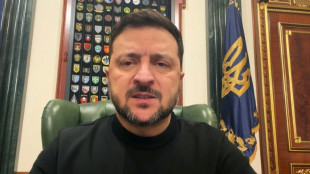
-
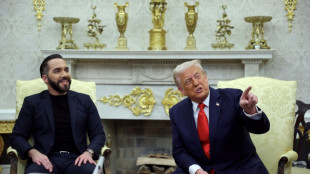 El Salvador defends mega-prison key to Trump deportations
El Salvador defends mega-prison key to Trump deportations
-
Stranger Things set for final bow: five things to know

-
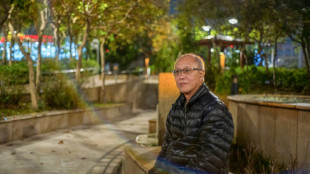 Grief, trauma weigh on survivors of catastrophic Hong Kong fire
Grief, trauma weigh on survivors of catastrophic Hong Kong fire
-
Asian markets mixed after US growth data fuels Wall St record

-
 Stokes says England player welfare his main priority
Stokes says England player welfare his main priority
-
Australia's Lyon determined to bounce back after surgery

-
 Stokes says England players' welfare his main priority
Stokes says England players' welfare his main priority
-
North Korean POWs in Ukraine seeking 'new life' in South

-
 Japanese golf star 'Jumbo' Ozaki dies aged 78
Japanese golf star 'Jumbo' Ozaki dies aged 78
-
Johnson, Castle shine as Spurs rout Thunder

-
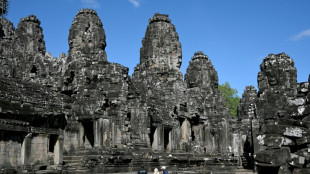 Thai border clashes hit tourism at Cambodia's Angkor temples
Thai border clashes hit tourism at Cambodia's Angkor temples
-
From predator to plate: Japan bear crisis sparks culinary craze
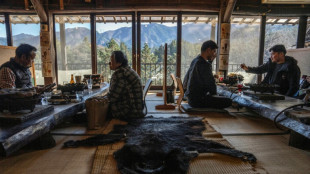
-
 Asian markets mostly up after US growth fuels Wall St record
Asian markets mostly up after US growth fuels Wall St record
-
'Happy milestone': Pakistan's historic brewery cheers export licence

-
 Chevron: the only foreign oil company left in Venezuela
Chevron: the only foreign oil company left in Venezuela
-
US denies visas to EU ex-commissioner, four others over tech rules
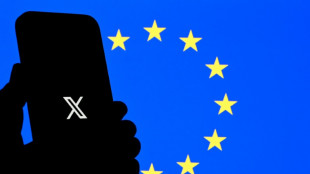

WHO facing 'new realities' as US withdrawal looms
The World Health Organization on Tuesday wrapped up its executive board meeting, held against the backdrop of the United States -- by far its largest donor -- heading for the exit.
The agenda-setting eight-day gathering at the WHO's Geneva headquarters wrestled with the impact of US President Donald Trump's January 20 decision to start the one-year process of withdrawing from the UN health agency.
"We are operating with twin strategic goals: to mobilise resources and to tighten our belts," WHO chief Tedros Adhanom Ghebreyesus said in his closing remarks.
"We regret the announcement by the United States of its intention to withdraw, and it was also sad to see them participating less this week," he said.
"I think we all felt their absence. We very much hope they will reconsider and we would welcome the opportunity to engage in constructive dialogue."
The United States is on the executive board, but made only fleeting contributions throughout the eight-day event.
The board is composed of 34 member states, who nominate a board member who is technically qualified in health.
The board agrees the agenda and resolutions for the decision-making World Health Assembly in May.
"We have had to face new realities, with the announcement of the withdrawal of the US from the WHO," said Barbados's health minister Jerome Walcott, the board's chair, as he closed the meeting.
"Despite the many challenges we faced, we have come together and found agreement on 40 decisions and seven resolutions, which aim to strengthen our work and to enhance good public health."
- Prioritising funding -
If anything, the US move has driven home the need for more secure and reliable funding at WHO, which in recent years has relied heavily on voluntary contributions.
As part of a plan to swell membership fees to cover at least half of the organisation's budget by 2030, the board recommended a 20 percent fee hike.
Boosting membership fees is seen as a way for WHO to reduce its reliance on a handful of major donors and ensure more predictable and flexible finances.
"This is a very strong signal of your support, and it's a major step towards putting WHO on a more predictable and sustainable financial footing," Tedros said.
"You said we need to prioritise based on realistic funding. We agree," he added.
"You said we need to improve efficiency, enhance oversight and reduce unnecessary expenditures. We agree."
Last week, the board also re-adopted a resolution on responding to the health conditions in the Palestinian territories.
The total planned costs required to implement the decision were given as $648 million, including $275 million for emergency response and $265 million for early recovery and rehabilitation.
Other topics discussed by the board included non-communicable diseases, mental health, skin diseases, environmental health, air pollution, the global health workforce, substandard and falsified medicines, maternal and newborn health, health emergencies, and universal health coverage.
F.Dubois--AMWN


